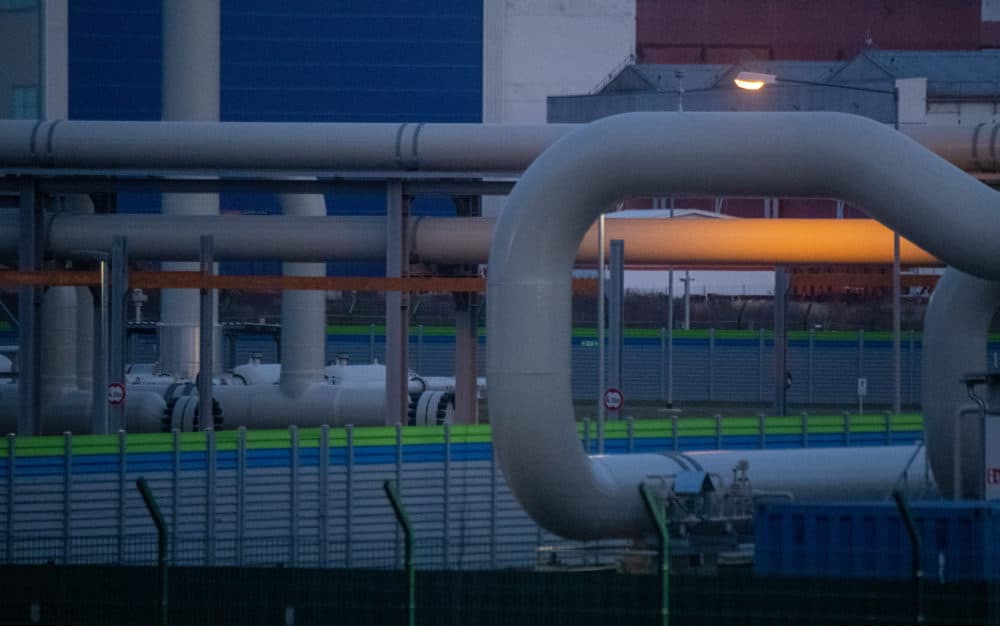Advertisement
Commentary
What if a nation's energy reserves had no bearing on its geopolitical power?

The war between Russia and Ukraine is an energy war. More precisely, it’s a war over fossil fuels.
The objective facts of the situation are not debatable. About 30 percent of Russia’s gross domestic product derives from oil and gas. It is a petrostate, in no uncertain terms. Although it does export wheat and some strategic metals, its lifeblood is fossil fuels. Oil and gas pay for its military.
To secure its future, Russia wants to control the supply routes for its primary exports. It constructed the Nord Stream 2 Pipeline that Germany has now blocked. It is currently paying Ukraine billions in transit fees for access to a pipeline network that delivers gas from Russia to Europe.
This is a study in geopolitical entanglement. Russia’s gas pipelines are designed for export to Europe, and it can threaten to cut off the supply at any time. Europe needs the gas but opposes Russia’s expansionist nationalism. Ukraine wants to be the intermediary for gas exports, but it resists Russian meddling. Russia is increasingly wary of Ukraine’s westward leanings, but it depends heavily on linkage to the European pipeline network. Russian dominance of European energy markets threatens to diminish American influence.
Big Oil is aiming to exploit the crisis for lasting effect.
That Russia produces a significant share of the global petroleum output is another complicating factor. Global oil prices are climbing in anticipation of supply disruptions. We are already feeling the effects.
The U.S. fossil fuel industry is giddy. Oil prices are up, making shale oil production comfortably profitable. The Biden administration is moving to expedite shipments of liquefied natural gas from U.S. wells to European ports. LNG exports to Europe are now at an all-time high.
Big Oil is aiming to exploit the crisis for lasting effect. Adopting a stance centered on national security, they’re spinning the Ukraine crisis as an argument for more leases, more drilling, more pipelines, and less regulation. Mike Sommers, president of the American Petroleum Association, tweeted, “actions to restrict U.S. natural gas and oil production are steps in the wrong direction.”
Fossil fuel interests are touting America’s ability to export gas to our allies as an essential strategic asset, one that we would lose if we ever allowed our infrastructure to atrophy.
Advertisement
Building more fossil future infrastructure in the U.S. today has no bearing on the near-term situation in Europe, but it does favor more oil and gas production over the next few decades. As climate writer Kate Aronoff observed, “[the] issue is investing in build-out of stuff that isn't solving any short-term problems while locking in carbon and methane long-term. . . and the idea that Europe desperately needed Nord Stream 2 also seems overhyped.”
Oil and gas producers will benefit from higher prices due to the Ukraine situation, but the overall economy will not. Energy price increases propagate across all economic sectors, feeding inflation. And nobody gains from high inflation’s drag on economic growth.
Higher prices at the pump will lead to reduced demand for gasoline. A portion of the decline will result from people economizing and driving less. But we are at an interesting juncture with respect to alternatives to gas-powered vehicles and, for that matter, all of our fossil energy consumption. The move away from fossil fuels could gain momentum with a shove from higher prices.
What if the price instability stemming from the Ukraine crisis is a wake-up call for policymakers? The climate crisis has already spurred tremendous research and development in non-hydrocarbon energy sources, but a war fought over oil and gas could add a heightened sense of urgency.
Oil and gas producers will benefit from higher prices due to the Ukraine situation, but the overall economy will not.
You can imagine a world powered by renewable energy in which vast reservoirs of methane or petroleum under a nation’s soil do not imbue it with outsize geopolitical leverage.
In that world, there’s no need to frack gas or mine tar sands. There are no catastrophic oil spills or massive methane releases. Nobody has to grow up breathing diesel fumes. In that world, a nation’s economy isn’t yanked around by fluctuations in fuel prices. One rogue state can’t threaten to destabilize the entire global economy by withholding its exports. And countries don’t go to war over energy security.
That world may still be a few decades away, but it is attainable.
The war in Ukraine will exact a high cost in human suffering and loss of life. But if there is any good it might yield, perhaps there will be a coming to terms with our fossil fuel addiction.
